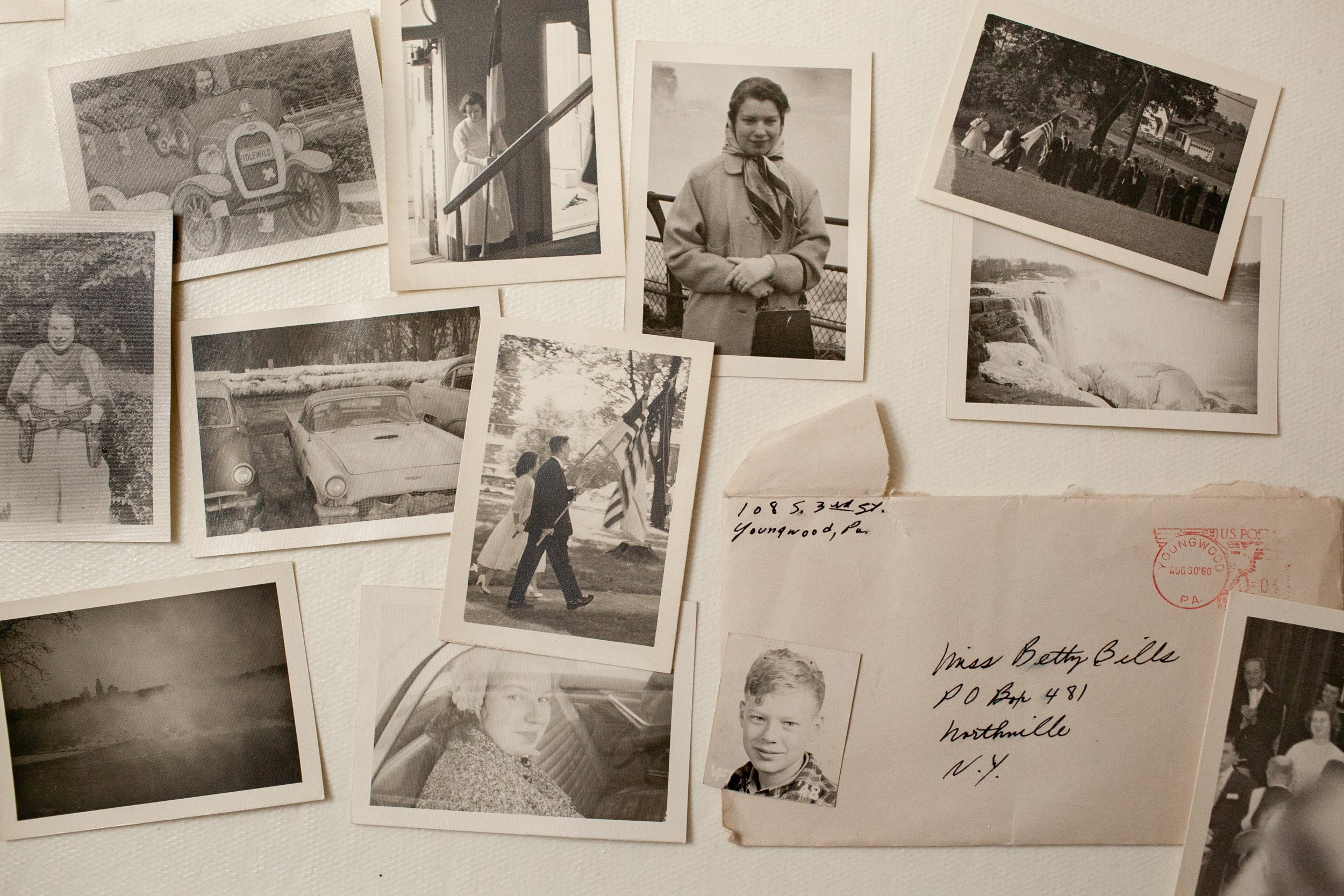“I told you why she married me, didn’t I?”
my Grandpa asked while tinkering with a brass hinge in his garage. I couldn’t recall the reason and even if I did remember I would still want to hear it again.
He smiled and simply stated, “‘57 T-Bird.”
It’s been years since I last stepped into my grandparents home, and while my grandma’s passing was never the reason I wanted to return, I was comforted to see that their home, in many respects, was very much how I remembered it to be. The entrance is still filled with books representing different eras and the many skills my grandparents possess, like photography, music, math, mechanics, and computer science. Sitting atop the kitchen counter was the same, worn tupperware containing our family favorite: grandpa’s oatmeal cookies. And then there are all the practical ways my grandpa has retrofitted their house, reusing and recycling objects in ways that display their simplicity and his engineering mind. While revisiting their home flooded my mind with memories of her, both in my childhood and college years, packing away her possessions cemented the reality that she has passed from this life into the next.
We know that death is one of the few guarantees in life. Every one of us will come to recognize that our life is a vapor that is here today but vanishes tomorrow (James 4:14). What happens after death is dependent on whether or not we come to a saving knowledge of Christ or not. I’m so thankful that I can say that my grandmother trusted in Jesus Christ as her Lord and personal Savior. She faced a number of health issues the last few years but could say with Paul that "we do not lose heart, but though our outer man is decaying, yet our inner man is being renewed day by day” (2 Corinthians 4:16).
The older I get, the more I see the reality of death increase. Ecclesiastes reminds us that one generation comes and another one goes (1:4). Our family suffered the loss of my cousin not that long ago. Even that very week, as we gathered to remember my grandma, my mom also received the news that my uncle in the Philippines passed away. What can possibly anchor our soul amidst the tumultuous waves that come with death? I shared with a friend today that all I can do is look to my heavenly Father and trust in His word, character, and promises. Without my faith, I would be without hope and without peace. While there certainly needs to be a time to mourn, we don’t live as those without hope (1 Thess. 1:14).
One of Ethan and my favorite quotes is by missionary Henry Martyn (1781–1812), reminding us that we have but one purpose here on Earth: to glorify God and enjoy Him forever. He once said:
I have rightfully no other business each day but to do God's work as a servant, constantly regarding His pleasure. May I have grace to live above every human motive, simply with God and to God. If [God] has work for me to do, I cannot die.
Christians are God’s workmanship created in Christ Jesus to do good work (Ephesians 2:10). We don’t know how long the Lord will allow us to walk this earth, but like Mr. Martyn said, we will remain here as long as God has work for us to do. It doesn’t matter how young or old we are; God still has work for you and me to do. He’s revealed the good work we are to do: love Him wholeheartedly, read and meditate on His Word, be fervent in prayer, share the Gospel, make disciples, teach the coming generations, gather with the Church Body, use our spiritual gifts in a local church, and so much more! Rather than squandering our God-given time, we ought to leverage every ounce of breath, energy, and time God has given us to walk worthy of our calling.
Do I miss my grandma? Yes. Are there ways I could’ve been a granddaughter? Most definitely. But I am hopeful that I will see her again someday soon. Until then, I’m reminded to continue running the race God has set before me.
We sang this hymn at church today, and I think it’s fitting to close this entry with these words. They are a reminder of the simple message of the gospel. We bring nothing into this world and take nothing from us. All we have to cling to is the person and work of Jesus Christ alone.
Rock of Ages, cleft for me,
Let me hide myself in Thee;
Let the water and the blood,
From Thy riverside, which flowed,
Be of sin the double cure,
Save me from its guilt and power.
Not the labor of my hands
Can fulfill Thy law’s demands;
Could my zeal no respite know,
Could my tears forever flow,
All could never sin erase,
Thou must save, and save by grace.
Nothing in my hands I bring,
Simply to Thy cross I cling;
Naked, come to Thee for dress,
Helpless, look to Thee for grace:
Foul, I to the fountain fly,
Wash me, Savior, or I die.
While I draw this fleeting breath,
When mine eyes shall close in death,
When I soar to worlds unknown,
See Thee on Thy judgment throne,
Rock of Ages, cleft for me,
Let me hide myself in Thee.
The Stewart Family, 2024






































